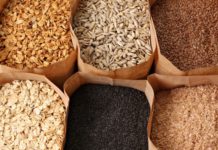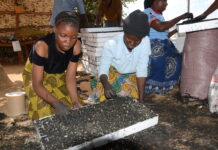By: Tanya McClean
Khumbulani Mthethwa (46) from Darnall, KwaZulu-Natal is a farmer who has been farming since the early 90’s. He believes the future of farming is in supporting local and diversifying income streams. His main produce is sugarcane, and he welcomed the financial boost that the sugar industry experienced during lockdown.
Commenting on the current sugar market, Mthethwa said the international shut down last year due to the Covid19 pandemic, created demand for local sugar because imports were stopped. “Demand locally was much bigger, so there was a 15-18% increase in revenue,” he says. He adds that when the borders closed, government categorised them as essential and were given the green light to keep going. This was a welcome boost for local farmers.
Mthethwa is happy with the government’s five-year Master Plan for the agricultural sector which encourages suppliers to buy local. “It’s better for us to sell locally because when we sell globally there is a dedicated price, “he adds. Unemployment numbers continue to increase, and the growth of sugar farmers will lead to job creation. “The sugar cane industry is the largest employer in KwaZulu Natal and buying locally produced sugar will create more jobs,” he says.
Mthethwa’s love for farming started at a young age because his father was a tractor driver on a farm, and this exposed him to farming. When he was young, he worked on farms to gain experience and this is when he saw a future in farming. 26 years later, he now owns two sugar farms under Mvelenhle Farming. “I was very happy when my application to buy the farm was approved. I couldn’t sleep that night,” he says.
He bought his first farm in 2011 and braced himself for the challenges that come with farming. Having worked on farms for many years, he knew that farming is not for the faint-hearted and it’s not an opportunity to turn a quick profit. “It’s not about overnight success but it’s about having a passion for producing food for society,” he says. After many years of hard work, he is now the official supplier to the iLembe Enterprise through a school feeding scheme programme. He also farms vegetables which he supplies to local supermarkets and communities.
“Farming looks easy, I’m in my 26th year and I’m still learning,” he says. In farming, timing is crucial for successful crops. He adds that farming is challenging because there are ever-changing variables to consider. Unpredictable weather conditions are one of the biggest challenges because if a farm is hit by drought, it can take two to three years for it to recover. Producing quality sugarcane helps him grow his business. “To produce quality sugar cane, you need to nurture your cane because if you don’t, you’ll be muscled out,” he says.
Innovation is vital in farming and Mthethwa believes diversifying into other crops such as macadamia could bring him additional revenue. “If we keep expanding sugar cane, there will be an oversupply,” he says. To him, growing macadamias is a long-term investment because farmers only start reaping rewards from the crops after five years; however, reaping can continue for over 30 years. He also plans on expanding to ethanol production which could be another form of income.
There are increasing concern about water availability in Africa as climate change continues to be a concern. “Farmers need to be proactive in planning ahead as rainfall is predicted to decrease in the next five to ten years,” he says. Mthethwa adds that it’s important to continue learning about farming and he is busy with his second year of studying a business administration degree.
Farmers are vital for the growth of the economy, food supply and creating employment.
Innovation in farming is taking place at a large scale and farmers need to try new things and look at cost savings methods to benefit the entity. “To produce quality sugar cane, you need to nurture your cane because if you don’t, you’ll be muscled out,” he concludes








